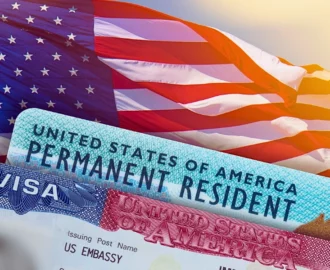Individuals who wish to seek asylum from a country that has undergone persecution must meet several requirements, including a “well-founded fear” of persecution based on the five grounds of persecution. Meeting the requirements for seeking asylum in the U.S. can help immigrants obtain protection against harm or threats of harm.
What Is Persecution?
Persecution refers to harassment, injury, punishment, oppression, or another form of harm to a country’s citizens. While U.S. immigration law doesn’t provide a specific definition of persecution, violence, threats, and other violations of people’s freedoms and rights are usually forms of persecution that may allow individuals to seek asylum.
The nation has granted asylum to immigrants for many reasons. These may include a foreign government’s firing of weapons on protesters, imprisonment and torture of perceived undesirables and dissidents, and discrimination of certain religious groups by excluding them from political processes. Some cases may also involve genocide against specific populations.
The foreign government doesn’t need to be behind the persecution. Some cases may involve actors within the country persecuting citizens, but the government doesn’t take steps to combat it. This would fall under persecution that may warrant the asylum of immigrants. For instance, guerrillas, paramilitary groups, warring clans or tribes, and vigilantes may persecute citizens of a country without the government’s direct involvement. The only requirement is that the persecution must have a social or political basis.
With enough proof of persecution or the “well-founded” fear of future persecution, individuals may be able to gain asylum in America, which could lead to naturalization and U.S. citizenship in the future. Additionally, some immigrants who assist the U.S. military during wartimes may be eligible for special immigrant visas.
What Are the Five Grounds of Persecution?
People may want to seek asylum in the U.S. simply because they fear what will happen if they return to their home nation. However, they must meet U.S. law’s definition of a refugee before applying for asylum.
To apply for asylum, individuals must be able to prove that they have a valid fear of future persecution or that they’ve experienced persecution in the past.
Proving persecution depends on whether the individual has suffered harm or threats of harm based on one of five grounds. These grounds include:
- Race
- Nationality
- Membership in a specific social group
- Political opinion
- Religion
It’s often challenging to connect persecution with these grounds due to the need to provide sufficient proof.
Political Opinion
Persecution based on political opinion involves individuals who hold political opinions that go against the authorities. Commonly, these political opinions are critical of the country’s government or the government’s policies.
If an individual wants to know how an immigrant becomes a U.S. citizen through asylum on these grounds, they should speak with a knowledgeable immigration attorney. He or she can help you understand your rights and what qualifies as persecution for political opinion.
It’s important to keep in mind that the authorities must know about this political dissidence. Immigrants can prove this type of persecution with evidence like public speeches or writings, or proof of their involvement in public protests. Individuals may also seek asylum on these grounds if the authorities believe that immigrants hold dissenting political opinions, even if they don’t. What matters for immigration purposes here is that the reason that people are persecuting or targeting the applicant is because of their actual or perceived political views.
Membership in a Particular Social Group
Proof of membership in a particular social group is arguably the hardest to prove and is the subject of frequent debate. Social groups are those that share common characteristics, to the point where the members can’t change them without changing the nature of the entire group. Governments also need to recognize these groups as defined entities, and they must have specific membership boundaries.
What Is a “Well-Founded Fear” of Persecution?
To show that an individual has a “well-founded fear” of persecution, immigrants must be able to show objective and subjective reasonable fear. Objective reasonable fear indicates that individuals can show clear facts based on objective forms of evidence, along with credible witness testimony, that can show how people in a similar position would have a reasonable fear of persecution in the future. Meanwhile, subjective fear indicates that the immigrant has a true fear of returning to their home country.
When the U.S. Government Deems a Country Safe
Many people seeking asylum and adapting as an American immigrant have suffered past persecution and don’t intend on making a return to their country of origin in the near future. However, the U.S. government may determine that the country is safe for the asylee to return to at some point.
While this is possible, individuals may still be able to gain asylum in the U.S. if they can clearly show why they have reason to believe they face future persecution. This is known as “humanitarian asylum.”
When to Apply for Asylum
If individuals believe that they qualify for asylum in the U.S., they may be able to apply by completing an application and submitting evidence to support their arguments for leaving their home country. Evidence may include witness testimony, the applicant’s testimony, proof of persecution in the news or other publications, and other documentation.
Although many applicants may believe that they have enough evidence to support their claims when seeking asylum, the fact is that it’s often difficult to prove eligibility. For individuals who are unfamiliar with the process and want some help, it’s best to speak with an immigration legal services attorney. These attorneys can evaluate your situation and help determine if you meet the specific requirements in place for seeking asylum in the United States. An experienced attorney will also be able to help you gather all the paperwork and documentation required to submit a successful application.
By proving persecution and providing evidence of a reasonable, well-founded fear of returning to a country of origin, immigrants may be able to successfully apply for asylum.




